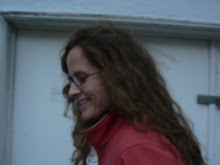Poets & Texts:
Wallace Stevens, Vice President of Hartford Accident & Indemnity Company, from The Collected Poems of Wallace Stevens
Julia Cohen, Education Editor--Palgrave MacMillan, Who Could Forget the First Sensational Evening of the Night
Frank O'Hara, MOMA curator, from The Collected Poems of Frank O'Hara
Frank Stanford, land surveyor, You
Elisa Gabbert, copywriter for WordStream, Thanks for Sending the Engine
Edward Thomas, journalist and soldier, from The Poems of Edward Thomas
William Carlos Williams, pediatrician, packet
Monica Youn, entertainment lawyer, Ignatz
Sampson Starkweather, science textbook editor, City of Moths
Andrea Baker, antique dealer, like wind loves a window
Steve Scafidi, cabinet maker, Sparks from a Nine-Pound Hammer
Field Trips:
Wallace Stevens' house in Hartford, CT
MOMA
tour of a bakery
Course Objectives:
How do poets earn a living. Since there are more poets than there are teaching jobs, what do we do. The relationship of academia and poetry, poets: discuss. Does a job influence a poet's work. Does it matter. Does it make the poet a more interesting literary figure. Jay Hopler's (I think) analyzation of Wallace Stevens' reports. There are poets among us. What do these careers say about what poets value. What is value. Describe the financing of poetry. Name the poet who used to be a nun.




4 comments:
At what point will "Thanks for Sending the Machine" overtake the actual title of my chapbook in number of references/popularity?
Editing/copywriting is the new teaching, looks like.
This little post interested me, farrah, because I do indeed work in not academia but something like its runner up of sorts - high school...and public at that...and for 13 years too...and while touring and making records...and writing, yes. I think teaching informs writing and writing informs teaching. That old saying about doing and not doing and teaching and writing and the space in between is kinda strange to me. I mean, if you love birds then why wouldn't you live near a sanctuary? Hope you're well...in nyc? It's Alan Semerdjian via Melissa Menake by the way...nice finding you tonight. We'd love to see you...I'm doing a show at Highline Ballroom on July 10th. Be well!
A great reminder that some of the great ones were average Joes. Found this, oddly, one day after viewing the film American Splendor, about comic book writer Harvey Pekar, who worked as a file clerk until he finally retired from the position.
While shaping my poetic self, I've worked in sales/marketing, had my own businesses, "served my country" as an English teacher, and I'm currently an editor for an IT market research firm.
Some of the finest poets I've had the pleasure of knowing, of learning from, straddle the blue-white collar divide (e.g., land surveyor, driver's license bureau). It seems to give the poems a deeper level of reality, a keener eye on the everyday profundities of life.
madeline defrees was a nun. What do I win?
Post a Comment